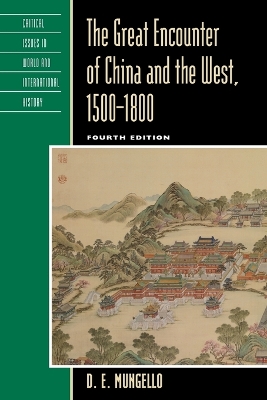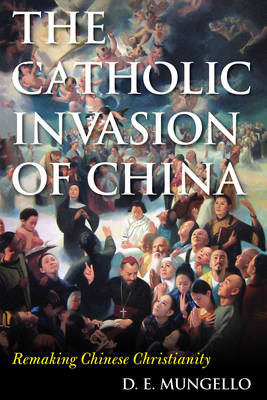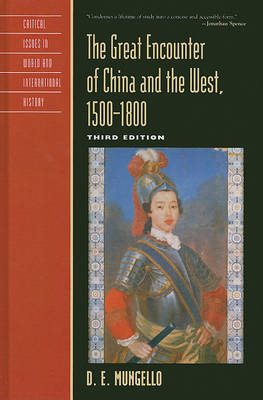Critical Issues in World and International History
3 total works
For the Chinese, the drive toward growing political and economic power is part of an ongoing effort to restore China's past greatness and remove the lingering memories of history's humiliations. This widely praised book explores the 1500-1800 period before China's decline, when the country was viewed as a leading world culture and power. Europe, by contrast, was in the early stages of emerging from provincial to international status while the United States was still an uncharted wilderness. D. E. Mungello argues that this earlier era, ironically, may contain more relevance for today than the more recent past. This fully revised fourth edition retains the clear and concise quality of its predecessors, while drawing on a wealth of new research on Sino-Western history and the increasing contributions of Chinese historians. Building on the author's decades of research and teaching, this compelling book illustrates the vital importance of history to readers trying to understand China's renewed rise.
The culmination of D. E. Mungello's forty years of study on Sino-Western history, this book provides a compelling and nuanced history of Roman Catholicism in modern China. As the author vividly shows, when China declined into a two-century cycle of poverty, powerlessness, and humiliation, the attitudes of Catholic missionaries became less accommodating than their famous Jesuit predecessors. He argues that "invasion" accurately characterizes the dominant attitude of Catholic missionaries (especially the French Jesuits) in their attempt to introduce Western religion and culture into China during the nineteenth and early twentieth century. Elements of this attitude lingered until the end of the last century, when many Chinese felt that Pope John Paul II's canonization of 120 martyrs reflected the imposition of an imperialist mentality. In this important work, Mungello corrects a major misreading of modern Chinese history by arguing that the growth of an indigenous Catholic church in the twentieth century transformed the negative aspects of the "invasion" into a positive Chinese religious force.
The Great Encounter of China and the West, 1500-1800, Third Edition
by D. E. Mungello
Published 16 March 2009
For the Chinese, the 2008 Beijing Olympics were far more than a sports event. They were part of an ongoing effort to restore China's past greatness and remove the lingering memories of history's humiliations. This widely praised book explores the 1500-1800 period before China's decline, when the country was widely viewed as a leading world culture and power. Europe, by contrast, was in the early stages of emerging from provincial to international status while the United States was still an uncharted wilderness. D. E. Mungello argues that this earlier era, ironically, may contain more relevance for today than the more recent past. This fully revised third edition retains the clear and concise quality of its predecessors, while adding striking illustrations and new scholarship on female infanticide in China and the sometimes tragic stories of Chinese visitors to eighteenth-century Europe. Drawing on the author's decades of research and teaching, this compelling book illustrates the vital importance of history to readers trying to understand today's world.


